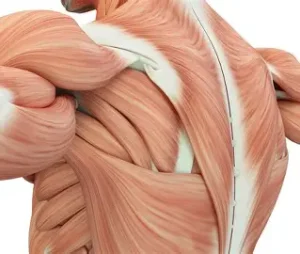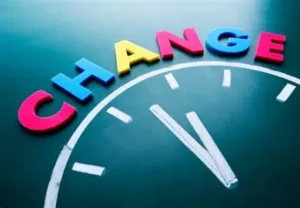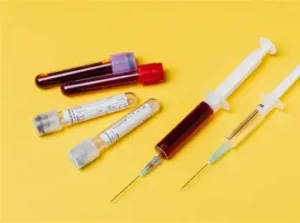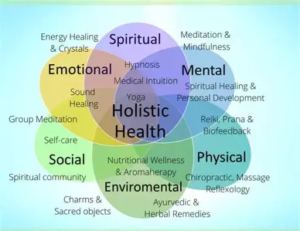Read time 5 minutes
They say health is wealth, but I never truly grasped its depth until the day my body began sending signals I couldn’t ignore.
What started as a harmless twitch soon escalated into something far more persistent and life-altering.

Today, I write this not just to share my journey with Isaacs’ Syndrome, but to offer a message of gratitude and hope to anyone facing a storm in their body.
When Twitching Becomes the Tune of Life

I was going about my everyday life when I felt a light muscle flicker. Initially, I dismissed it as fatigue or overexertion. But this wasn’t a one-time thing. It lingered. It grew. It eventually followed me into sleep. The sensation was strange: almost like waves rippling under my skin.
This wasn’t normal. This was a sign.
And this was the beginning of my relationship with muscle fasciculations. It is a condition where muscles twitch involuntarily due to misfiring nerve cells.
At that point, I didn’t know how dramatically life was about to shift. But looking back, that first twitch was my body’s quiet plea for help.
Discovering Isaacs’ Syndrome: The Diagnosis That Changed Everything

In 2016, after countless consultations and tests, I was diagnosed with Isaacs’ Syndrome. It is a rare autoimmune neuromuscular disorder. The syndrome is characterized by continuous muscle fiber activity, even when at rest. It’s caused by peripheral nerve hyperexcitability. And it doesn’t just change how your muscles behave; it impacts how you experience life itself.
Along the way, I discovered Lyme disease had also made a home in my body. It is a tick-borne bacterial infection that further challenged my immune system. Then came a cascade of other diagnoses:
- Glaucoma– damaging my optic nerves
- Frozen Shoulder – limiting movement and causing pain
- Blood Pressure issues and Diabetes – byproducts of treatment and stress
- Irritable Bowel Syndrome (IBS) – adding digestive discomfort
- Eczema, fatigue, muscle loss, and stiffness – constant companions
- Membranous Glomerulonephritis– a progressive kidney disease that deeply concerned my doctors
To say I was overwhelmed would be an understatement.
But beneath the medical chaos, I was slowly learning that healing isn’t just about medicine. It’s a lot to do with the mindset and relentless courage.
Understanding Muscle Fasciculations
I became intensely curious about what was happening within my body.
Muscle fasciculations felt like my nerves were dancing to their own erratic rhythm. The central nervous system which includes the brain and spinal cord wasn’t communicating properly with the peripheral nervous system, responsible for voluntary muscle movement. Somewhere, wires were crossed.
The biochemical mechanism behind fasciculations is still not fully understood. Therefore, I knew I had to become my own advocate for understanding it better.
A Parade of Tests and Needles

To confirm Isaacs’ Syndrome and Membranous Glomerulonephritis and to explore the extent of its impact, I underwent an array of diagnostic tests:
- EMG (Electromyography) to evaluate nerve and muscle activity
- GAD and Caspr2 antibody testing to look for autoimmune markers
- MRI, PET scans, lumbar spine ultrasonography
- Kidney biopsy, blood work, and more
The most telling result was my CPK (Creatine Phosphokinase) level. It is an enzyme that spikes when muscles are injured or inflamed. Mine was off the charts.
Navigating Treatment: A Delicate Balancing Act
There’s no one-size-fits-all approach to Isaacs’ Syndrome. The treatment was layered, complex, and constantly evolving.
Western Medicine
My initial course involved:
- Steroids to control inflammation
- Immunosuppressants and muscle relaxants
- Plasmapheresis
- IVIg therapy to regulate my immune response
While these medications helped manage the symptoms, they came with significant side effects. As someone already battling multiple chronic issues, my body wasn’t always receptive.
Holistic Healing

Desperate for relief, I turned to holistic methods:
- Prioritized sleep hygiene—my body’s nightly recharge
- Practiced meditation and deep breathing to calm my nervous system
- Switched to an anti-inflammatory diet, ditching caffeine and stimulants
- Embraced Ayurveda and Homeopathy through AYUSH
- Maintained hydration with electrolytes and magnesium supplements
- Took charge of my Vitamin B12 and D levels
These lifestyle changes weren’t just healing tools—they were survival strategies.
Lessons From Medical Experts (and My Own Body)
The most profound lessons came not just from doctors, but from learning how to listen to my body. Here are insights that truly made a difference:
- Avoid muscle stimulants like coffee, garlic, and asafetida—they overstimulate the nervous system
- Manage anxiety—stress is a silent saboteur
- Include vital nutrients: magnesium, potassium, calcium, Vitamin B complex, and Vitamin D
- Comparison is futile—everyone’s body reacts differently; healing is personal
Reflections and Key Takeaways

This journey transformed how I see health, self-care, and inner resilience. Here are some lessons I hold close:
- Personalized care is essential – What works for one may not work for another
- The mind-body connection is powerful. Relaxation and mindfulness often provided more relief than pills
- Consistent communication with your doctors is vital. I maintained a unified thread among all specialists
- Track medication side effects meticulously – Diabetes and blood pressure emerged unexpectedly
- React immediately to new symptoms – Timely intervention saved me more than once
- Healing takes time – It’s not about giant leaps; it’s about daily, intentional baby steps
Gratitude: My Superpower
Despite everything, I refuse to look at my condition through a lens of despair. Instead, I choose gratitude.
Every day I wake up with the ability to smile, to think, to try—I thank the Universe. Whether it’s one less twitch or an hour of restful sleep, it’s a win.
This blog is a personal prayer, a quiet celebration of the body’s will to fight, and a deep bow to the countless souls; doctors, friends, strangers, who held space for my healing.
A Final Message to Fellow Fighters
If you’re navigating a rare or chronic condition, I see you. I feel you. And I honor your strength. The path may be rocky, the diagnosis scary, the treatments frustrating. But within all that complexity lies your story—and it deserves to be told.
Healing isn’t just about getting “better.” It’s about becoming whole, however that looks for you.
DISCLAIMER
This article reflects my personal experience and should not be interpreted as medical advice. Please consult healthcare professionals for diagnosis and treatment.


